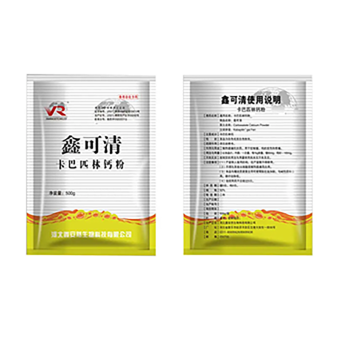- Afrikaans
- Albanian
- Amharic
- Arabic
- Armenian
- Azerbaijani
- Basque
- Belarusian
- Bengali
- Bosnian
- Bulgarian
- Catalan
- Cebuano
- Corsican
- Croatian
- Czech
- Danish
- Dutch
- English
- Esperanto
- Estonian
- Finnish
- French
- Frisian
- Galician
- Georgian
- German
- Greek
- Gujarati
- Haitian Creole
- hausa
- hawaiian
- Hebrew
- Hindi
- Miao
- Hungarian
- Icelandic
- igbo
- Indonesian
- irish
- Italian
- Japanese
- Javanese
- Kannada
- kazakh
- Khmer
- Rwandese
- Korean
- Kurdish
- Kyrgyz
- Lao
- Latin
- Latvian
- Lithuanian
- Luxembourgish
- Macedonian
- Malgashi
- Malay
- Malayalam
- Maltese
- Maori
- Marathi
- Mongolian
- Myanmar
- Nepali
- Norwegian
- Norwegian
- Occitan
- Pashto
- Persian
- Polish
- Portuguese
- Punjabi
- Romanian
- Russian
- Samoan
- Scottish Gaelic
- Serbian
- Sesotho
- Shona
- Sindhi
- Sinhala
- Slovak
- Slovenian
- Somali
- Spanish
- Sundanese
- Swahili
- Swedish
- Tagalog
- Tajik
- Tamil
- Tatar
- Telugu
- Thai
- Turkish
- Turkmen
- Ukrainian
- Urdu
- Uighur
- Uzbek
- Vietnamese
- Welsh
- Bantu
- Yiddish
- Yoruba
- Zulu
វិច្ឆិកា . 14, 2024 20:06 Back to list
the importance of animal nutrition
The Importance of Animal Nutrition
Animal nutrition is a fundamental aspect of agricultural practices, influencing the health, productivity, and overall well-being of livestock. Proper nutrition is crucial not only for the animals themselves but also for the economic sustainability of farms, the quality of animal products, and environmental conservation. Understanding the significance of animal nutrition requires a comprehensive look at its roles in growth, reproduction, immunity, and the implications of poor dietary practices.
Firstly, proper nutrition is essential for optimal growth and development in animals. Livestock—such as cattle, pigs, sheep, and poultry—require a balanced diet that provides the necessary nutrients for muscle development, bone health, and overall vigor. Nutritional deficiencies can lead to stunted growth, lower weight gain, and reduced productivity. For instance, dairy cows need adequate energy, protein, vitamins, and minerals to produce milk efficiently. Inadequate nutrition can decrease milk output and quality, ultimately affecting the dairy farmer's profitability.
The Importance of Animal Nutrition
Moreover, animal nutrition plays a pivotal role in boosting the immune system and disease resistance. Well-nourished animals tend to have stronger immune responses, making them less susceptible to infections and illnesses. A diet rich in antioxidants, vitamins, and minerals can enhance the overall health of the animals and reduce the need for antibiotics and other medications. This not only contributes to the welfare of the animals but also promotes safer food products for consumers, minimizing the risk of antibiotic resistance in bacteria.
the importance of animal nutrition

Furthermore, the nutritional choices made in animal husbandry have significant implications for the quality of animal products, such as meat, milk, and eggs. The nutrient composition of an animal’s diet directly affects the nutritional value, flavor, and safety of the products it produces. For example, animals fed a diet rich in omega-3 fatty acids will produce meat and eggs with higher omega-3 content, which is increasingly sought after by health-conscious consumers. Quality animal nutrition, therefore, plays a vital role in meeting consumer preferences and improving market competitiveness.
The economic impact of animal nutrition cannot be overstated. Feeding livestock accounts for a significant portion of total production costs in animal agriculture. Efficient feeding strategies and high-quality feed formulations can lead to improved feed conversion ratios, meaning that animals gain more weight or produce more milk or eggs per unit of feed. This efficiency translates to improved profitability for farmers, making animal nutrition a key consideration in agricultural economics.
The environmental implications of animal nutrition are becoming increasingly important as well. The type of feed used and the nutritional strategies employed can influence greenhouse gas emissions and resource use in livestock production. Incorporating more sustainable feeding practices, such as utilizing by-products and optimizing feed formulations, can help reduce the environmental footprint of animal agriculture. Additionally, ensuring that livestock are well-nourished can minimize waste, as healthier animals are more efficient in converting feed into energy and products.
In conclusion, animal nutrition is a critical component of successful livestock management with far-reaching effects on animal health, productivity, economic viability, and environmental sustainability. As the global population continues to grow and the demand for animal products increases, the focus on optimizing animal nutrition will be essential. Through research, innovation, and education, we can improve animal diets, enhance their welfare, and contribute to a more sustainable future in agriculture. Whether it is through better feed formulations, sustainable practices, or improved management strategies, prioritizing the nutrition of our livestock is an investment in a healthier and more productive agricultural system.
-
Guide to Oxytetracycline Injection
NewsMar.27,2025
-
Guide to Colistin Sulphate
NewsMar.27,2025
-
Gentamicin Sulfate: Uses, Price, And Key Information
NewsMar.27,2025
-
Enrofloxacin Injection: Uses, Price, And Supplier Information
NewsMar.27,2025
-
Dexamethasone Sodium Phosphate Injection: Uses, Price, And Key Information
NewsMar.27,2025
-
Albendazole Tablet: Uses, Dosage, Cost, And Key Information
NewsMar.27,2025













